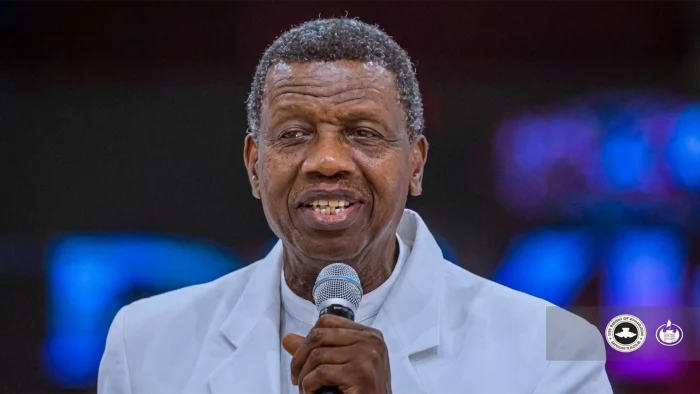West Africa remains one of the poorest regions in the world. According to the World Bank, over 30 per cent of the population lives below poverty line. This context makes financial inclusion not just an economic goal but a social imperative, thereby, fostering intra-regional trade.
However, many believe strengthening the Financial Market Infrastructure through a shared digital identity framework would accelerate onboarding to financial services, enable digital wallets, mobile payments and cross-border remittance flows and increase participation in formal economies.
It will also reduce the cost of KYC (Know Your Customer) processes, allowing micro, small, and informal enterprises to access credit and trading platforms that were previously out of reach.
But one of the major obstacles to intra-regional trade is the difficulty individuals and small businesses face in verifying their identity across borders, leading to transactional friction, limited access to formal financial services, and lack of trust in cross-border operations.
It is believed that a unified, interoperable digital identity infrastructure will serve as the foundation upon which seamless trade, payment interoperability and cross-border services can be built.
These were the concerns raised at the inaugural West Africa Economic Summit (WAES) in June 2025, while driving a deeper conversation about West Africa’s trade reality.
Experts posits that digital identity strengthens trade by making the informal visible, reducing fraud, and enabling access to financial services, logistics, and government programs across national boundaries.
A unified digital identity system is an economic and developmental imperative to regional growth. When citizens can move across borders with a recognised and verifiable identity, they can trade, access services, establish trust in new markets, and participate meaningfully in regional growth.
Digital identity strengthens trade by making the informal visible, reducing fraud, and enabling access to financial services, logistics, and government programmes across national boundaries.
Nigeria, through the National Identity Management Commission (NIMC), has enrolled over 120 million citizens under the National Identification Number (NIN) system.
Côte d’Ivoire and Senegal have also made notable progress with biometric systems linked to social programmes. However, several countries, including Guinea, Sierra Leone, and Liberia, still face gaps in coverage and interoperability. This disparity weakens cross-border trade, mobility, and trust. For meaningful regional integration, identity must be reliable, digital, and recognised beyond national borders.
Given technological upgrades and strategic collaborations, major issues of harmonisation and duplication have also been addressed. In the same vein, Ghana’s digital ID system, managed by the National Identification Authority, is widely integrated across banking, voting, and public services.
When underserved grassroots communities, especially women, youth, and informal traders, are empowered with secure digital identities, they are not just being counted; they are being connected to opportunity.
They can register their businesses, open accounts, receive digital payments, and engage in regulated, secure trade not only within their borders but across the continent.
Speaking at the summit on the topic titled: Digital Identity and Trade in West Africa, Director-General/CEO, NIMC, Nigeria, Abisoye Coker-Odusote, stated that to unlock the full potential of intra-African trade and regional prosperity, it is critical that major stakeholders must align around a shared digital identity vision for West Africa.
She noted that governments of West African Nations must prioritise digital identity as infrastructure, just as vital as roads, ports, and power, saying this means allocating national budgets to identity programmes, embedding identity into trade and financial policies, and ensuring legal frameworks enable cross-border recognition of credentials.
Coker-Odusote added that identity management agencies such as Nigeria’s NIMC, Ghana’s NIA, and their counterparts must strengthen cooperation to achieve interoperability across systems. This includes adopting shared technical standards, synchronising enrolment protocols, and supporting countries still in the early stages of implementation through knowledge exchange and capacity building.
According to her, ECOWAS and WAEMU must take the lead in institutionalising this agenda at the regional level, saying this includes establishing a West African Digital Identity Working Group, introducing a regional digital ID charter, and investing in infrastructure that supports cross-border identity verification for trade, migration, and security.
NIMC boss urged the Private Sector, especially banks, fintechs, telcos, and logistics firms, to be active partners, asking them to integrate digital ID verification into their onboarding processes, build digital trust networks, and offer inclusive financial products tailored to newly identified individuals and small-scale traders.
He admonished the civil society, local communities, and traditional leaders must help drive grassroots awareness and adoption, saying through community advocacy, digital literacy, and trusted networks, they can reduce resistance, boost uptake, and ensure that identity systems are inclusive of women, the unbanked, and the undocumented.
“Together, we can move beyond fragmented national systems toward a truly regional identity framework, one that empowers our people to trade, transact, travel, and transform. Let us not wait for another generation to inherit this challenge. Let us solve it now, collaboratively and decisively. West Africa’s economic future depends on it.”
The Minister of Foreign Affairs and Chair of the ECOWAS Council of Ministers, Yusuf Maitama Tuggar, stressed the need for West Africa to reset its economic vision, stating that the region’s purpose is to build on existing frameworks to drive economic growth and development.
Tuggar noted that West Africa enjoys freedom of movement and a framework to facilitate trade, pool electricity, and integrate transport corridors.
He underscored the region’s rich history of trade and innovation, citing examples of markets such as Salaga, Katsina, and Kano that were economic engines long before the modern state existed
However, Tuggar lamented that despite the region’s vast potential, only 8.6 percent of its $166 billion exports in 2024 remained within its borders. He attributed this to the region’s over-reliance on external partners and the export of unprocessed raw materials.
The minister emphasised the importance of creating an enabling environment for the private sector to thrive and for governments to support entrepreneurs in the region. “It’s good to talk, better still to deliver,” he said, urging participants to use the summit as an opportunity to make deals and drive economic growth in the region.
“West Africa, for centuries an equal partner in international trade, was left behind by the industrial revolution and patterns of development that reduced our comparative advantage and still leaves us struggling for fair access to markets and finance.
“One example: we pay the costs for the climate emergency but received few of the benefits of the process that created it. Competition is healthy, and it is in our common interest to keep that competition healthy and positive for all stakeholders. As a region, West Africa has the scale, talent and critical mass that no individual state alone can match.
“Now we have a one-off chance to leverage the profound changes already shaping our common future, as advances in technology, processing and data stretch the imagination of what is possible ahead. West Africa can and should be part of this revolution.”
Tuggar also noted West Africa’s potential, citing the region’s possession of rare minerals vital to new industries. “Let’s stop outsourcing the future and take back control of our destiny,” he said, emphasising the need for the region to leverage advances in technology and data to drive growth and development.
President Bola Tinubu, stressed the need for deeper integration, policy coherence, and capital alignment to drive economic growth. Tinubu noted that West Africa is one of the last great frontiers of economic growth, but opportunity alone does not guarantee transformation. “We must earn it through vision, integration, policy coherence, collaboration, and capital alignment,” he said.
While highlighting the challenge of intra-regional trade, the President attributed it to a coordination failure. “The global economy will not wait for West Africa to get its act together and neither should we,” he warned.
Tinubu emphasised the importance of strengthening regional value chains, investing in infrastructure, and coordinating policies to achieve shared prosperity. He also stressed the need for investments in education, digital infrastructure, innovation, and productive enterprise to harness the demographic potential of the region’s youthful population.
The President noted that joint projects, such as the Lagos-Abidjan Highway and West African Power Pool, demonstrate what is possible when the region works together. However, he stressed that more needs to be done to move from declarations to concrete deals and from policy frameworks to practical implementation.
Tinubu also emphasised the need for the region to become value-chain smart and invest in local processing and regional manufacturing to maximise the benefits of its natural resources. “The era of pit to port must end,” he said, adding that the region must turn its mineral wealth into domestic economic value, creating jobs, technology, and manufacturing.
The President called for a renewed commitment to ease of doing business, enhanced intra-regional trade, improved infrastructure connectivity, and innovative ideas to drive economic growth and prosperity. “Let us emerge from this summit with actionable outcomes,” he urged.
The Director-General of the World Trade Organisation (WTO), Ngozi Okonjo-Iweala, called on the Economic Community of West African States (ECOWAS) to fully implement the African Continental Free Trade Agreement (AfCFTA) and deepen regional integration. Okonjo-Iweala said ECOWAS must reduce trade costs, which she described as among the ‘world’s highest’.
“I often say that the future of trade is services, it’s digital and it’s green, and with an educated and connected young people, thriving tech startups and vast renewable energy potential, we’re well positioned for it, provided we can offer the right enabling environment,” Okonjo-Iweala said.
“But we also need to build up manufacturing capacity, and meetings like this one have a critical role to play in this regard. If each of our countries works alone, it is unlikely that we’ll be able to build efficient value chains that attract the investment we need.
“However, if ECOWAS can think in terms of sub-regional value chains, our markets and economies become bigger and more attractive to investors.
“The pharmaceutical industry is one promising sector, and the COVID-19 pandemic experience of being bumped to the back of the queue for vaccines was a reminder of why the continent needs to produce more pharmaceutical products at home.
“Senegal, with its Institut Pasteur de Dakar, is a potential hub for vaccines. Other parts of the pharmaceutical ecosystem, research, production, fill and finish operations and so forth, could be built in other countries. And in fact, I think that in Nigeria, part of that ecosystem is already being put in place.
“We should also seek to leverage our green comparative advantage by building out solar and wind energy capacity to power critical minerals processing in the sub-region.
“Can we move up the electric value chain and start making battery components and even automobiles? In the services space, we have seen some tech companies like Junior and Flutterwave of Nigeria start to operate across borders in the region, showing the way for others. We could also aim to have more sub-regional trade and tourism that is driven by the cultural industries.”
The director-general added that to build regional value chains, ECOWAS must address trade barriers, non-tariff frictions, and gaps in physical, regulatory, and digital infrastructure that have long held back trade in West Africa and across the continent.








